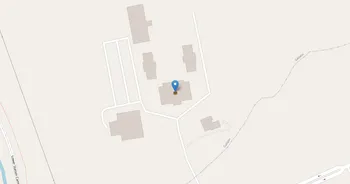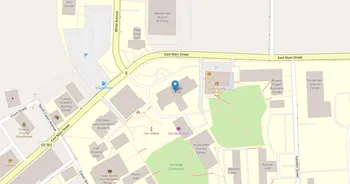Fisk University : Overview, Courses, Scholarships & Rankings
About Fisk University
Known for the storied Fisk Jubilee Singers who carry spirituals to stages far beyond campus, Fisk University has a reputation for blending a strong liberal-arts core with research-minded science, business, and the creative and performing arts. Students often find close-knit classes, thoughtful faculty mentorship, and access to labs, studios, performance spaces, a well-used library and gallery, plus advising, tutoring, and wellness support that feels personal.
Campus life leans energetic and purposeful: student organizations, service projects, open mics, exhibitions, and intramurals keep weeks full. The culture is collaborative, proudly rooted in HBCU history, with a tradition of scholarship and civic engagement. Career prep stays practical, with internship possibilities and professional connections across Nashville's music, health care, nonprofit, and public spheres. And the city becomes an extension of the classroom. Notable alumni include W. E. B. Du Bois, Nikki Giovanni, and John Lewis.
Key Institutional Details
Contact & Profile
Academic & Institutional
Academic Programs & Fields of Study
Fisk University offers 17 degree programs across 13 major academic fields, graduating approximately 135 students annually. The most popular fields by graduate volume are Biological Sciences (2 programs, 48 graduates), Computer & IT (1 programs, 19 graduates), Physical Sciences (2 programs, 14 graduates), Psychology (1 programs, 14 graduates) and Social Sciences (2 programs, 11 graduates). Explore program details, award levels, and graduate demographics below.
Biological Sciences (2 programs, 48 graduates)
Life Sciences, Biotechnology and Biomedical Research
| Program Name | Graduates | Gender Distribution | Award Levels | CIP Code |
|---|---|---|---|---|
| Biology and Biological Sciences | 46 |
|
Bachelor's
Master's
|
26.0101 |
| Biochemistry and Molecular Biology | 2 |
|
Bachelor's
|
26.0210 |
Computer & IT (1 programs, 19 graduates)
Computer Science, Information Technology and Cybersecurity
| Program Name | Graduates | Gender Distribution | Award Levels | CIP Code |
|---|---|---|---|---|
| Computer and Information Sciences | 19 |
|
Bachelor's
|
11.0101 |
Physical Sciences (2 programs, 14 graduates)
Chemistry, Physics and Earth Sciences Research
Psychology (1 programs, 14 graduates)
Psychological Sciences, Mental Health and Behavioral Studies
| Program Name | Graduates | Gender Distribution | Award Levels | CIP Code |
|---|---|---|---|---|
| General Psychology | 14 |
|
Bachelor's
Master's
|
42.0101 |
Social Sciences (2 programs, 11 graduates)
Sociology, Anthropology and Political Science Studies
| Program Name | Graduates | Gender Distribution | Award Levels | CIP Code |
|---|---|---|---|---|
| Political Science and Government | 8 |
|
Bachelor's
|
45.1099 |
| Sociology | 3 |
|
Bachelor's
|
45.1101 |
Business (1 programs, 9 graduates)
Business Administration, Marketing and Entrepreneurship
| Program Name | Graduates | Gender Distribution | Award Levels | CIP Code |
|---|---|---|---|---|
| Business Administration | 9 |
|
Bachelor's
|
52.0101 |
Liberal Arts (1 programs, 5 graduates)
Liberal Arts Education, General Studies and Humanities
| Program Name | Graduates | Gender Distribution | Award Levels | CIP Code |
|---|---|---|---|---|
| General Studies | 5 |
|
Bachelor's
|
24.0102 |
Arts (2 programs, 5 graduates)
Fine Arts, Design Studies and Creative Performance
| Program Name | Graduates | Gender Distribution | Award Levels | CIP Code |
|---|---|---|---|---|
| Art Studies | 3 |
|
Bachelor's
|
50.0701 |
| Music | 2 |
|
Bachelor's
|
50.0901 |
Mathematics (1 programs, 4 graduates)
Mathematical Sciences, Statistics and Computational Analysis
| Program Name | Graduates | Gender Distribution | Award Levels | CIP Code |
|---|---|---|---|---|
| Mathematics | 4 |
|
Bachelor's
|
27.0101 |
English (1 programs, 2 graduates)
English Literature, Creative Writing and Literary Analysis
| Program Name | Graduates | Gender Distribution | Award Levels | CIP Code |
|---|---|---|---|---|
| English Language and Literature | 2 |
|
Bachelor's
|
23.0101 |
Admission Requirements & Test Scores
Comprehensive overview of admission criteria, standardized test score ranges, and application requirements for prospective students at Fisk University.
Application Requirements
Data based on IPEDS for 2022-2023 academic year. Test score ranges represent the middle 50% of admitted students (25th-75th percentile). Requirements may vary by program.
Tuition, Fees & Estimated Costs
Overview of tuition rates, housing, and other annual education expenses for undergraduate and graduate students
Financial Aid & Student Support
Summary of scholarships, grants, student loans, and financial aid statistics for undergraduate students
Student Success Metrics
Graduation rates and post-graduation earnings to help assess student outcomes and long-term value of education.
Loan Burden & Repayment Outcomes
Breakdown of loan repayment rates and student debt levels by income and dependency status.
Frequently Asked Questions
Find answers to the most common questions about Fisk University
How much does it cost to attend Fisk University?
The annual tuition at Fisk University is $24,298 for in-state students. When including room and board, books, and other expenses, the total estimated cost is approximately $41,496 for in-state students. Additional costs include room and board $11,698 and books and supplies $2,000.
Data based on IPEDS program completions for 2022-2023 academic year. Tuition and cost estimates are approximate and may not include all fees, personal expenses, or transportation costs.
What academic programs and degree levels does Fisk University offer?
Fisk University offers 17 academic programs across 13 major fields of study, with available degree levels: Bachelor's, Postbac Cert., Master's.
Most popular program areas include:
- Life Sciences, Biotechnology and Biomedical Research (2 programs)
- Computer Science, Information Technology and Cybersecurity (1 programs)
- Chemistry, Physics and Earth Sciences Research (2 programs)
- Psychological Sciences, Mental Health and Behavioral Studies (1 programs)
- Sociology, Anthropology and Political Science Studies (2 programs)
Data based on IPEDS program completions for 2023-2024 academic year. Numbers reflect programs where students graduated, not all offered programs.
What is the acceptance rate for Fisk University?
Fisk University has an 57.9% acceptance rate and a 6.9% yield rate, making it selective.
Admission statistics breakdown:
- Total applicants: 7,982
- Students admitted: 4,622
- Students enrolled: 320
Data based on IPEDS for 2022-2023 academic year. Admission statistics may vary by program and application cycle.
What financial aid and scholarships are available at Fisk University?
Fisk University provides financial aid to 30% of first-time, full-time students, with average grants of $20,400 and average loans of $7,252.
Average financial aid amounts by type:
- Pell grants: $5,284
- State/Local grants: $6,350
- Institutional grants: $18,651
- Federal loans: $5,867
The university supports 288 students with grants and 168 students with loans annually.
Data based on IPEDS for 2022-2023 academic year. Financial aid amounts and percentages may vary by program, enrollment status, and individual circumstances.
What is the average salary for Fisk University graduates?
Fisk University graduates earn a median salary of $33,604 after 6 years and $45,454 after 10 years.
The salary range 10 years after graduation spans from $25,449 (25th percentile) to $63,020 (75th percentile).
Data based on IPEDS for 2022-2023 academic year. Salary data reflects graduates who received federal financial aid (approximately 60% of all graduates). Actual earnings may vary significantly based on program, location, and individual circumstances.
Related Universities




Found something useful? Help others discover it too! Share with friends, on social media, or save for later - every share helps someone find the information they need.